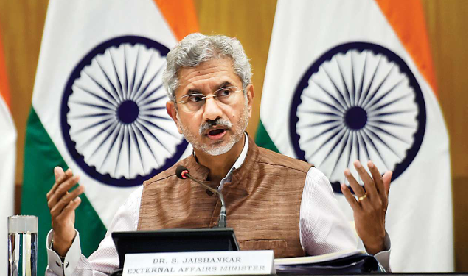
Editorial March 2021
- March 20, 2021
- 0
Due to shortage of skilled manpower in the Industry, experience is the preferred criteria, to fulfill the requirement.
There is a need to think about the most useful ways forward about the skilling programmes.
In the case of skills, the market failure arises out of positive externalities. When one individual increases his skills, some of the benefits accrue to him and to his employer, but some of the benefits accrue to others in society.
Firm worry, that the employees would leave, so some of the gains of his increased skills would go to future employers.
Individuals face asymmetric information and lack confidence that spending money on skilling will generate a useful impact on their production capacity and market prospects. These difficulties of finance and of information lead to under-investment in skills. Industrialist’s intervention and confidence on skilling programs, can help address the market failure.
The bulk of skills take place through the process of work. Learning by doing, is very natural and comprehensive, rather than learning in a classroom. Hence, everything that is done in this field, should have a strong connection with employers.
The key challenges in this new mechanism, as with the study mechanism, is quality assurance and the trust of employers and workers.
Employers regularly face the problem of skilling in their daily working. Freshers, trained in these institutions, normally fail to understand the changing scenerio, where businesses have to change their modalities to match the market requirements. There is a need of blender.
The key challenge in this new mechanism, for IPIRTI and FRI,is quality assurance and the trust of employer’s and workers. The quality of training is varied in different employers, assessments are not entirely standardised. For this, We need to assess the difficulties of Indian labour market and the place of skill in it.
Skilling programs should not be defined around the formal and large scale employer’s only.
In order to recognize and support migration flows, skilling solutions have to take places with an eye to the national market for labour. There are considerable labour migration flows taking place within the country. There is a need to address foundational skills, including soft skills, recognizing the limitations of elementary education. A great deal of the actual learning takes place in apprenticeship with employers, and this needs state support, but we need to think about apprenticeship as it takes place in the Indian informal sector and not a formal machinery that works only for formal sector firms.
Excessive centralization of design, of policy or of skills programmers, hinders the ability of skilling organizations to respond to the felt needs of the community. This calls for a flexible approach where decision-makers at the ground level look at the reality around them and adapt themselves to fit in it.
Suresh Bahety
9050800888
उद्योग में तकनीकी विशेषज्ञों की कमी की वजह से अनुभव के आधार पर कामगारों का चयन प्रचलित कार्य प्रणाली है।
लेकिन बदलती जरूरतों के हिसाब से कामगारों का कौशल विकास किए बगैर, औद्योगिक क्षेत्र की वृद्धि संभव प्रतीत नहीं हो रही।
जब कोई शख्स अपनी दक्षता बढ़ाता है ,तो उसके कुछ लाभ न केवल उसे और उसके नियोक्ता को मिलते हैं, बल्कि कुछ लाभ समाज में दूसरों को भी मिलते हैं।
कंपनियों को यह डर सताता है कि कौशल हासिल करने के बाद कर्मचारी, उनका साथ छोड़कर चले जाएंगे, लिहाजा उनके सवंर्दि्धत कौशल के कुछ लाभ भावी नियोक्ताओं को मिलने लगेंगे। लोगों के पास सूचनाओं की कमी होती है और यह भरोसा भी नहीं होता है कि कौशल विकास पर खर्च की गई रकम उनकी उत्पादक क्षमता एवं बाजार संभावनाओं पर एक (कितना) उपयोगी असर डालेगी। वित्त एवं सूचनाओं की उपलब्धता से जुड़ी ये मुश्किलें कौशल विकास में निवेश को प्रभावित करती हैं। ऐसे समय में उद्यमियों का कौशल विकास पर निवेश का भरोसा ही समस्या दूर कर सकता है।
दक्षता विकास को कार्य की प्रक्रिया के जरिये बेहतर अंजाम दिया जा सकता है। काम करते हुए सीखना क्लासरूम में सीखने से कहीं बेहतर नतीजे देते हैं । लिहाजा इस क्षेत्र में किए जाने वाले हरेक काम का नियोक्ताओं के साथ मजबूत नाता होना जरूरी है।
लोगों को कुशल बनाने की यह व्यवस्था कंपनियों की क्षमता की रोजमर्रा वाली मुश्किलों से दो-चार होती रही है। प्रशिक्षण संस्थानों से निकलने वाले युवा अक्सर अर्थव्यवस्था की बदलती जरूरतों से तालमेल नहीं बिठा पाते हैं , जहां तकनीक और कार्य प्रणाली में बाजार के हिसाब से आवश्यक परिवर्तन कर लिये जाते हैं। जरूरत है एक सम्मिश्रण की।
IPIRTI और FRI संस्थानों की भी , कौशल विकास कार्यक्रमों की इस नई व्यवस्था के समक्ष , बड़ी चुनौती, गुणवत्ता सुनिश्चित करने और नियोक्ताओं का भरोसा बनाए रखने की ही है। निजी क्षेत्र में भिन्न-भिन्न नियोजन प्रशिक्षण की गुणवत्ता में फर्क होता है, इनका आकलन पूरी तरह मानकीकृत नहीं हैं। इसके लिए हमें भारतीय श्रम बाजार की मुश्किलों के आकलन और उसमें कौशल की जगह की जरूरत है।
कौशल कार्यक्रम सिर्फ औपचारिक एवं बड़े स्तर के नियोक्ताओं के इर्दगिर्द ही परिभाषित नहीं होने चाहिए।
कामगारों के प्रवास को मान्यता एवं समर्थन देने के क्रम में कौशल समाधान की कवायद श्रम के राष्ट्रीय बाजार पर एक नजर रखते हुए अंजाम देनी होती है। देश के भीतर और बाहर बड़ी संख्या में कामगार जाते हैं। बुनियादी शिक्षा की सीमाओं को देखते हुए मूलभूत कौशल पैदा करने के साथ कामगारों के भीतर सहयोगी दक्षता पैदा करने की भी जरूरत है। नियोक्ताओं के साथ अप्रेंटिस के वक्त कामगार को असली सबक मिलता है और इसके लिए सरकारी समर्थन की जरूरत है लेकिन हमें अप्रेंटिस प्रक्रिया के बारे में सोचने की जरूरत है। यह सिर्फ औपचारिक क्षेत्र के लिए ही काम करने वाली औपचारिक व्यवस्था में न होकर भारतीय अनौपचारिक क्षेत्र में घटित होता है।
नीतियों या कौशल कार्यक्रमों के डिजाइन में अत्यधिक केंद्रीयकरण होने से समुदाय की जरूरतों के हिसाब से प्रतिक्रिया देने की कौशल विकास संगठनों की क्षमता बाधित होती है। इसके लिए एक लचीले रवैये की दरकार है जहां जमीनी स्तर के निर्णयकर्ता अपने आसपास की वास्तविकता देखते हैं और उसमें फिट बैठने के लिए अपने-आप को ढालते हैं।
सुरेश बाहेती
9050800888






























































